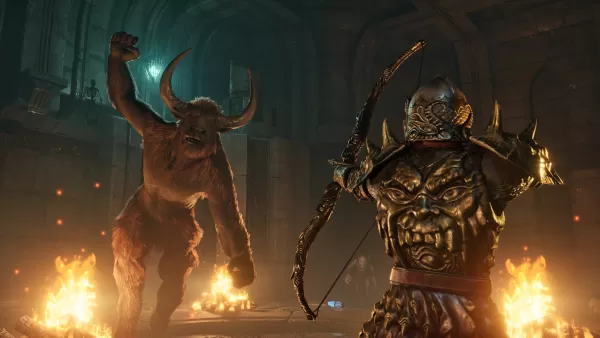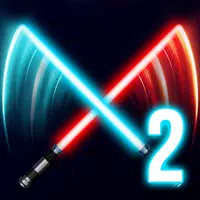When Bethesda unveiled Oblivion Remastered earlier this week, the excitement was palpable. The 2006 classic, known for its quirky, potato-faced characters and the expansive, albeit low-res, landscapes of Tamriel, has been transformed into the most visually stunning Elder Scrolls game to date. After experiencing numerous HD overhauls that often fell short of expectations—think Mass Effect Legendary Edition or Dark Souls Remastered, which hardly deviated from their Xbox 360 origins—seeing the Imperial City reborn in Unreal Engine 5 with ray tracing was nothing short of astonishing. Not only has the visual aspect been revamped, but the game also boasts enhancements in combat, RPG systems, and countless other details. Given these extensive changes, I initially questioned whether Bethesda and Virtuos had misnamed the project. Is this truly an Oblivion *Remaster* or rather a full-blown *Remake*?
It turns out, I wasn't the only one pondering this. Fans and even Bruce Nesmith, the senior game designer of the original Oblivion, have suggested that the term "remaster" might not fully capture the scope of the project. However, after spending several hours immersed in the game, it became clear: Oblivion Remastered may look like a remake, but it retains the essence of a remaster in gameplay.
The reasons why Oblivion looks like a remake are numerous and impressive. Virtuos has meticulously redesigned every single asset from scratch, resulting in a visually modern experience. From trees and swords to crumbling castles, everything you see on screen is brand new. The game not only meets but exceeds modern graphical standards with its beautifully textured environments, stunning lighting, and a new physics system that ensures realistic interactions with the world. Even though the NPCs are the same characters from 2006, their models have been completely recreated. This overhaul aims not to merely "look like you remember" but to achieve visual excellence by 2025 standards, making it the best-looking Bethesda Game Studios RPG to date. If I had seen it before the remaster rumors, I might have mistaken it for The Elder Scrolls 6.
Beyond the visuals, the gameplay has been significantly enhanced. Combat feels more responsive, with swordplay no longer resembling balloon fencing. The third-person camera now includes a functional reticule, and all menus—from the quest journal to dialogue and minigames like lockpicking and persuasion—have been given a fresh interface. The original levelling system, often criticized, has been replaced with a more logical hybrid of Oblivion and Skyrim's approaches. And yes, you can now sprint. With such extensive visual and gameplay upgrades, it's easy to see why some might consider this a remake.
However, the debate over whether this is a remake or a remaster hinges on semantics. The gaming industry lacks clear definitions for these terms, leading to confusion. Rockstar's "Definitive Edition" remasters of the Grand Theft Auto trilogy, for instance, retain their PlayStation 2-era blockiness despite upscaled textures and modern lighting. In contrast, the Crash Bandicoot N. Sane Trilogy, also labeled a remaster, features entirely new assets and looks like a modern game. Remakes vary widely too, from Bluepoint's faithful reconstructions of Shadow of the Colossus and Demon's Souls to Resident Evil 2's structural adherence with a complete gameplay redesign, and Final Fantasy 7 Remake and Rebirth's radical overhauls. The traditional view that a remake is a game rebuilt from scratch in a modern engine and a remaster is a limited upgrade within the original technology is becoming outdated. A more fitting definition might be that a remaster is a graphical overhaul that preserves the original game's design with some quality-of-life improvements, while a remake redesigns the game entirely.

Under this definition, Oblivion Remastered is aptly named. While it boasts new assets and stunning Unreal Engine 5 ray tracing, it retains the core structure and feel of the original game. Bethesda emphasized this by stating, "We looked at every part and carefully upgraded it. But most of all, we never wanted to change the core. It’s still a game from a previous era and should feel like one." The hallmarks of that era are evident in the loading screens, the quirky persuasion minigame, the simplistic city designs, the somewhat robotic NPCs, and the still slightly unwieldy combat system. Even the bugs and glitches that add to the game's charm have been preserved.
Recent games like Obsidian’s Avowed showcase the future of RPG mechanics, making Oblivion Remastered's systems feel dated in comparison. Yet, the magic of its world endures, with its expansive fields filled with mysteries and its ambitious features like dynamic goblin wars and engaging quest structures. While its dialogue and system interconnectivity may lack finesse, and its level design feels ancient, the game's commitment to preserving the original experience is clear. This is not a remake that updates all its ideas but a remaster that allows players to relive the old.
AnswerSee ResultsVideo games often borrow terminology from other mediums. In film, remakes are new productions with fresh casts and scripts, while remasters are existing films enhanced to match modern picture quality. Despite the stunning 4K restorations of classics like Jaws and The Godfather, they remain products of their time. Oblivion Remastered is similar to these film restorations, pushing the visual quality to its limits by recreating the game's "exterior" in a new engine while maintaining its core 2000s essence. As Alex Murphy, executive producer at Virtuos, explained during the reveal, "We think of the Oblivion game engine as the brain and Unreal 5 as the body. The brain drives all the world logic and gameplay and the body brings to life the experience that players have loved for almost 20 years."
Oblivion Remastered is a testament to what a remaster should be. It sets a new standard for how other AAA companies should approach remasters, outshining efforts like Mass Effect Legendary Edition and Grand Theft Auto: The Trilogy. There's nothing cynical about this project; it's a labor of love that looks like a remake but plays like a remaster, honoring the original while bringing it into the modern era.






